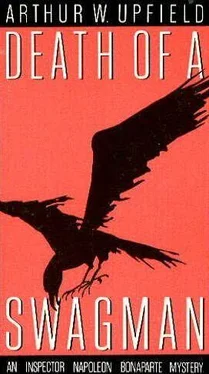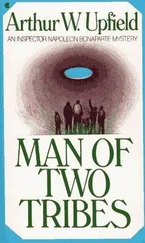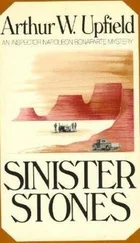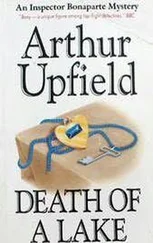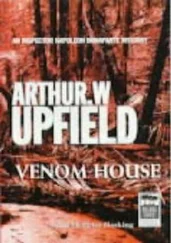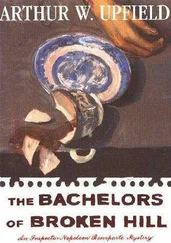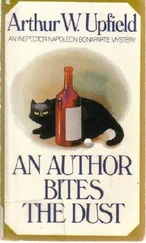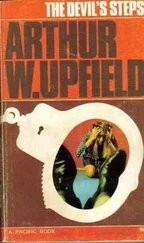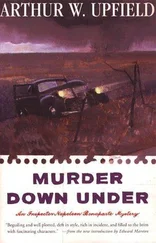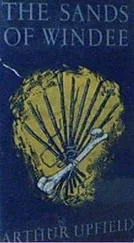Arthur Upfield - Death of a Swagman
Здесь есть возможность читать онлайн «Arthur Upfield - Death of a Swagman» весь текст электронной книги совершенно бесплатно (целиком полную версию без сокращений). В некоторых случаях можно слушать аудио, скачать через торрент в формате fb2 и присутствует краткое содержание. Жанр: Классический детектив, на английском языке. Описание произведения, (предисловие) а так же отзывы посетителей доступны на портале библиотеки ЛибКат.
- Название:Death of a Swagman
- Автор:
- Жанр:
- Год:неизвестен
- ISBN:нет данных
- Рейтинг книги:4 / 5. Голосов: 1
-
Избранное:Добавить в избранное
- Отзывы:
-
Ваша оценка:
- 80
- 1
- 2
- 3
- 4
- 5
Death of a Swagman: краткое содержание, описание и аннотация
Предлагаем к чтению аннотацию, описание, краткое содержание или предисловие (зависит от того, что написал сам автор книги «Death of a Swagman»). Если вы не нашли необходимую информацию о книге — напишите в комментариях, мы постараемся отыскать её.
Death of a Swagman — читать онлайн бесплатно полную книгу (весь текст) целиком
Ниже представлен текст книги, разбитый по страницам. Система сохранения места последней прочитанной страницы, позволяет с удобством читать онлайн бесплатно книгу «Death of a Swagman», без необходимости каждый раз заново искать на чём Вы остановились. Поставьте закладку, и сможете в любой момент перейти на страницу, на которой закончили чтение.
Интервал:
Закладка:
“There was also present George Kendall, a stockman employed on Wattle Creek Station, riding from a hut at a place called Sandy Flat, which is three miles due east of Merino and close against the Walls of China.
“Nothing much of Kendall’s history is known. He came east from the Darling River stations about a year ago, and got the job on Wattle Creek Station. He was unmarried and apparently had no relatives. His age was thought to be about thirty-eight. He was a good stockman. He never drank to excess, and he never gave us any trouble. He was a gambler but a poor sportsman, and his movements that night of October eleventh were as follows:
“He arrived in town about six o’clock and checked in at the hotel for the night. He stabled his horse at the rear of the hotel, had a few drinks at the bar, then had dinner, and later was seen by Gleeson, my constable, playing poker for matches with three travellers. He left the hotel with the licensee and his wife to go to the function at the hall, which was timed to begin at eight, the social part lasting till ten o’clock and the dancing continuing from then until midnight.”
“There was a full moon that night?” Bony interposed.
“Yes, there was a moon… a full moon, I think.”
“What were the weather conditions?”
“Clear sky and a wind.”
“About what was the velocity of the wind?”
“I couldn’t say. It was not a very strong wind that night.”
“No matter. I can find that out later. Proceed.”
“I didn’t go thechivoo,” Marshall continued. “I had a lot of those damn-fool statistics to make up, but Gleeson was on duty outside the hall and he had my permission to have a dance or two. He’s fairly popular, although you wouldn’t think so to look at him. Stickler for duty and regulations is Mounted Constable Gleeson.
“My wife went with Florence, our daughter. According to Gleeson, thechivoo was in full swing by eight o’clock. There was a whist drive going on in one portion of the hall, and children’s games were being conducted in another part. Now and then someone would be asked to go to the stage and give a song or a recitation.
“When Kendall entered the hall there was a children’s game called musical chairs going on. Our girl was in this game. Mrs James was playing the music on a piano and every time she stopped all the children rushed to the chairs, one of which was always short. Kendall went over to watch the game when Mrs James was playing and the children were dancing round the chairs in a circle. It turns out that when Mrs James stopped playing Florence hesitated in choosing a chair to run to, and Kendall pushed her with unnecessary violence so that she tripped and fell.
“The child wasn’t hurt, but the push ruined her chance of getting a chair. The parson, Mr Llewellyn James, admonished Kendall for interfering, and Kendall said: ‘I was only showing the silly brat what chair to go to.’ With that, young Jason, the son of the garage proprietor, walked up to Kendall, put a hammer lock on him, and marched him from the hall. There might have been a fight outside had not Gleeson been there, and to Gleeson, Kendall explained that what had happened was an accident. Young Jason went back inside, and after Gleeson had a few words with him. Kendall went in.
“At half past nine they servedsupper, and after supper all the children left and the dancing began. It was when Gleeson was having a dance that Kendall said something to young Jason and they went quietly out and fought in an adjacent allotment. Result: Kendall won and Jason wasn’t seen again that night.
“The following morning when the hotel yardman went to the stables he found that Kendall’s horse had been takenaway, and the maid found that Kendall’s room had not been occupied by him. Late in the morning of October twelfth the owner of Wattle Creek Station and one of his hands called at the hut at Sandy Flat to leave rations for Kendall. They found his horse standing saddled and bridled outside the horse paddock gate, and they found Kendall lying dead on the floor of his hut. The table was upturned and a chair broken. The door was closed. Kendall lay in a pool of blood, and the doctor who examined the body said that he had been killed with a blunt instrument, his skull badly smashed.”
“What time did you arrive on the scene?” Bony asked.
“Four minutes to two o’clock.”
“What were the weather conditions?”
“Fine with a wind blowing from the west.”
“How strong was the wind?”
“Medium strength, I suppose. Not strong, but strong enough to blow dust.”
“Are there any aborigines in the district?”
“Yes, but they come and go. When here they usually camp at Wattle Creek.”
“Where were they when Kendall was murdered?” asked Bony.
“They were camped on Wattle Creek… below the homestead.”
“None of them was outside the hall that night?”
“No. Two were brought across to Sandy Flat the next day to see if they could pick up any tracks, but by that time the wind had erased any tracks made by Kendall. As I told you, you will have to see the place to know why they failed. By the way, would you mind telling me why you are so sure that Kendall wasn’t killed inside the hut?”
“I will tell you something, but not everything,” Bony said, smiling. “I discovered the fact from one of the photographs taken by the police photographer who accompanied Redman, the picture of the front of the hut.”
“I saw that one. I saw no evidence.”
“Neither did Redman. But I did. It is why I am here.”
“But what…?”
“One day I’ll show you the evidence in that picture, without which I would not have consented to undertake this investigation. You see. Sergeant. I have never permitted myself to stultify my brain with common murders. I pick and choose my cases, not for their simplicity but for unusual circumstances governing them. My superiors often argue about my attitude, and speak of discipline and matters which fail to interest me. Sometimes they threaten to sack me, and that interests me even less. Look at me. You see-what? Come, tell me.”
Marshall hesitated, and Bony continued:
“You see a half-caste, a detective inspector in a state police department. I was given the chance of a good education by a saint, the matron of a mission station to which I was taken when abandoned as a baby. I passed from a state school to a high school, thence to the Brisbane University, where I won my Master of Arts degree, and so proved once again, if proof is necessary, that the Australian half-caste is not a kind of kangaroo. But I had to conquer greater obstacles than social prejudice. I had to conquer, and still have to conquer, the almost irresistible power of the Australian bush over those who belong to it.
“You have been in the bush long enough to have felt that power yourself, and you are a white man. A similar power is exercised over seafaring men by the sea, but it is notso strong as this power of the bush. The only counter-power preventing me from surrendering to it is pride, with a capital P, and faith inmyself. Without pride in my scholastic attainments and pride in my success as a crime investigator, the bush would have had its way with me. My record is unblemished by failure, and that is behind the faith in myself. Once I fail to solve a crime mystery, such as this Kendall case, I lose that faith in myself which holds me up with head high, and the great Detective Inspector Napoleon Bonaparte becomes Bony the half-caste nomad.
“I will not consent to investigate cheap and tawdry crimes of violence, or lesser crimes, because my pride would be shamed, and also I have to avoid the fear of failure which might grow in me did I accept any and every assignment given to me by my department. Once I forget that I am a police inspector and a Master of Arts, I become Bony thehalf-caste, and the banshee of the bush would lure me back and down into its secret cave, to stand naked before it and to recognize it as my lord and master.”
Читать дальшеИнтервал:
Закладка:
Похожие книги на «Death of a Swagman»
Представляем Вашему вниманию похожие книги на «Death of a Swagman» списком для выбора. Мы отобрали схожую по названию и смыслу литературу в надежде предоставить читателям больше вариантов отыскать новые, интересные, ещё непрочитанные произведения.
Обсуждение, отзывы о книге «Death of a Swagman» и просто собственные мнения читателей. Оставьте ваши комментарии, напишите, что Вы думаете о произведении, его смысле или главных героях. Укажите что конкретно понравилось, а что нет, и почему Вы так считаете.
